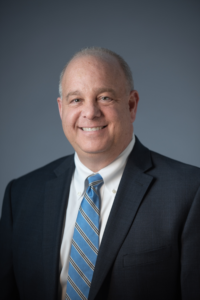From the day of our founding 45 years ago, Capital Caring Health (CCH) has been a mission-driven nonprofit dedicated to serving the District of Columbia, and parts of Maryland and Virginia. Along the way, we have been recognized as the region’s trusted hospice and elder services provider and a national leader known for innovation and collaboration with other nonprofit hospices. Those accolades are due to our vision, independence, and nonprofit status.
In the 1980s and 90s, nonprofits provided virtually all hospice care in the United States. But being a nonprofit hospice has become a rarity these days. Today, the field is dominated by for-profit organizations including those owned by private equity firms. Their priority is to return value to shareholders and/or owners; our priority is to deliver the highest value to you, your family, and our community.
So, when you are thinking about future healthcare needs for you or a loved one, there are some crucial factors to consider.
How to Pick a Hospice
Deciding how you or a loved one wants to be cared for during life’s last phases is one of the most important choices you will ever have to make. But there are ways to make that decision easier, by thinking ahead about what matters most to you or your family member. Undoubtedly, location is a key factor, as are any recommendations from your physician. Here are some other variables to review as you make your choice:
- What support services will you and your family receive and how often?
- Will a specific hospice accept you, even with complex and intensive medical needs?
- What if you or your family do not have insurance or other financial means?
- Are staff specially trained for end-of-life care?
- How comprehensive is bereavement support to help you and family members deal with grief after loss?
The answers to these questions may differ based upon whether you select a nonprofit or for-profit hospice.
The Nonprofit Difference
Studies show some real variations in cost and quality of care between nonprofit and for-profit hospices. Much of the discrepancy comes down to how and where each directs their money.
As background, all hospices are reimbursed the same by Medicare, which covers the vast majority of hospice patients. Regardless of a person’s diagnosis, their requirements for care or services, or how much care is provided, Medicare pays every hospice the same per-day rate. The fewer services provided, the larger the financial gain.
The National Partnership for Hospice Innovation (NPHI) commissioned one of the most recent surveys comparing care of Medicare patients by nonprofit and for-profit hospices. The ensuing 2019 report—compiled by Milliman, the global actuarial and consulting firm that conducted the study—found the following:
- Nonprofit hospices provided patients with 10% more nursing visits, 35% more social worker visits, and twice as many therapy visits as for-profit hospices.
- For-profit advertising costs were 300% higher than that of nonprofit hospices.
- Nonprofit hospice patients received nearly three times as many physician or nurse practitioner visits per day than for-profit patients.
- Nonprofits spent more per day for direct patient care than for-profits.
- Nonprofits directed more resources to non-reimbursable costs—such as bereavement services, volunteer programs, and palliative care programs—than for-profits. On bereavement services alone, for-profit hospices report spending less than half of what their counterparts do.
Of course, there are many for-profit hospices that provide quality care. But the Milliman report findings are consistent with other reports on the Medicare hospice benefit from the Department of Health and Human Services Office of Inspector General, Government Accountability Office, and the Medicare Payment Advisory Commission. All found significant differences in the quality of care and use of Medicare dollars between nonprofit and for-profit hospices.
The Capital Caring Health Advantage
At Capital Caring Health, our mission is to support everyone in the community as they deal with serious illness, advancing age, or a life-limiting condition—regardless of their ability to pay, race, or citizenship status. In fact, last year CCH spent $3.4 million to provide care for patients who lacked insurance coverage and/or the financial resources to cover the care and support needed.
And as a nonprofit, our commitment doesn’t end with our patients. We also provide free grief counseling/bereavement support to any member of our community experiencing the loss of a loved one, including children and young adults. Toward that end, we work with local school groups to identify children who are grieving and provide the appropriate support.
Specialized Programs for Changing or Unmet Needs
As part of our nonprofit mission, CCH has also created innovative programs and services to meet the changing—and often unmet—needs of the communities we serve. For example, our Primary Care at Home (PCH) program helps patients who may be home-limited due to chronic illness or disability by providing house calls, in-home diagnostic tests, and 24/7 care coordination. The program assures that enrollees do not neglect healthcare services that can prevent a chronic problem from growing worse, requiring hospitalization.
To improve the quality of life for patients with congestive heart failure (CHF), Capital Caring Health, in consultation with the American Heart Association, worked with other nonprofit hospices across the country to develop a standardized approach to managing CHF. The result is our comprehensive Advanced Cardiac Care (ACC) program that provides customized care management and guidance so even difficult symptoms can be safely managed at home—not in the hospital.
And while CCH provides hospice care in the home 98% of the time, sometimes more intensive, inpatient care is necessary. Yet the majority of hospice groups refuse to provide this higher level of care because of the severe financial drain. So, on February 8, 2022, we opened The Washington Home Capital Caring Health Inpatient Center at Sibley Memorial Hospital, which offers state-of-the-art inpatient hospice care in private, home-like suites where family and friends can visit 24/7.
CCH also helps underserved seniors in our community to safely age in place. Through a partnership with the D.C. Coalition to Support Caregivers—a Ward 7-based grassroots organization—along with grant support from the Potomac Health Foundation and CareFirst Foundation, home modification services are provided such as adding ramps, installing grab bars in the bathroom, getting rid of mold, or otherwise ensuring a safe and sound living environment. Individuals residing in the District’s Wards 5, 7, and 8; Maryland’s Prince George’s and Montgomery counties; and 13 zip codes in Virginia may be eligible for the assistance.
We are Here When You Need Us
Capital Caring Health’s mission has always been to provide the best quality care and support to all patients and families as they deal with serious illness, advancing age, or a life-limiting condition. And we believe those values are reflected in everything we do. As you consider a hospice, think about how you would, ideally, like to make the most of the time that is left, then compare the differences in care and support from one place to another. We believe that CCH’s record speaks for itself.
To learn more, you can read the Milliman report, view our guide to choosing a hospice, and find out more about all that we do online or by calling our 24-Hour Care Line: (800) 869-2136.



 Dr. Cheryl-Lynne McCalla, DO
Dr. Cheryl-Lynne McCalla, DO Kathleen Ramkaran, RN, CCM
Kathleen Ramkaran, RN, CCM Hali Gantumur
Hali Gantumur Yasmin
Yasmin  Jennifer Olsen GNP-BC
Jennifer Olsen GNP-BC Meena Raj, MD,
Meena Raj, MD, 

 Kimberly Grove
Kimberly Grove
 Pat Bishop
Pat Bishop Elizabeth Ariemma
Elizabeth Ariemma Ray Jay Garcia, M.D.
Ray Jay Garcia, M.D.
 Heidi Young
Heidi Young Matt Kestenbaum
Matt Kestenbaum
 Anne Silao-Solomon, M.D.
Anne Silao-Solomon, M.D. Matthew Irwin, M.D., M.S.W.
Matthew Irwin, M.D., M.S.W. Catherine McGrady, RN, MSN, is Vice President, Clinical Programs at Capital Caring Health. In this role she is responsible for the development, implementation, and monitoring of clinical programs in support of high-quality patient-centered care delivery across the continuum of services. Catherine also manages external partnerships including Capital Caring Health’s participation in ACOs and other value-based clinical programs
Catherine McGrady, RN, MSN, is Vice President, Clinical Programs at Capital Caring Health. In this role she is responsible for the development, implementation, and monitoring of clinical programs in support of high-quality patient-centered care delivery across the continuum of services. Catherine also manages external partnerships including Capital Caring Health’s participation in ACOs and other value-based clinical programs Jason Sobel, MD
Jason Sobel, MD Kremena Bikov
Kremena Bikov Stacy Brown
Stacy Brown Jackie Gouline
Jackie Gouline Susan Roberts
Susan Roberts Brenan Nierman
Brenan Nierman Annette Lindsay
Annette Lindsay Shannon Collier
Shannon Collier Carla Thompson
Carla Thompson Gabby True
Gabby True Evan Kirschner
Evan Kirschner Margaret Doherty
Margaret Doherty Henry Fuller
Henry Fuller Jennifer Godwin
Jennifer Godwin Sally Hughes
Sally Hughes LaWanda Middleton
LaWanda Middleton Hope Collazo
Hope Collazo Odessa Simpson
Odessa Simpson Anne Young
Anne Young Sherri Parker
Sherri Parker Catherine Kravolec
Catherine Kravolec Heidi Young, M.D.
Heidi Young, M.D.
 Hank Willner, M.D.
Hank Willner, M.D. Audrey Easaw
Audrey Easaw Julia Feldman
Julia Feldman Gus has been a part of the Capital Caring Health family for nearly fifteen years. Ten of those years have been in leadership, working with colleagues and co-workers to achieve the best in their ability while promoting CCH core values. Gus has a background in nursing and a lifelong passion for technology. In each position at CCH, Gus has found ways to integrate technology to enhance outcomes and job satisfaction.
Gus has been a part of the Capital Caring Health family for nearly fifteen years. Ten of those years have been in leadership, working with colleagues and co-workers to achieve the best in their ability while promoting CCH core values. Gus has a background in nursing and a lifelong passion for technology. In each position at CCH, Gus has found ways to integrate technology to enhance outcomes and job satisfaction.
 Linda Biedrzycki
Linda Biedrzycki Joe Murray
Joe Murray Lin Maurano
Lin Maurano Laura Branker
Laura Branker Cameron Muir, M.D.
Cameron Muir, M.D. Cameron Muir, M.D.
Cameron Muir, M.D. Fellowship
Fellowship Lee-Anne West, M.D.
Lee-Anne West, M.D.
 Steve Cone
Steve Cone

 Kieran Shah
Kieran Shah Altonia Garrett
Altonia Garrett Jason Parsons
Jason Parsons Nancy Cook
Nancy Cook Michael Byas-Smith, M.D.
Michael Byas-Smith, M.D. Olubukola Bolaji, M.D.
Olubukola Bolaji, M.D. Jennifer Gerhard, D.O.
Jennifer Gerhard, D.O. Hershell Foster
Hershell Foster Michael Toohig’s Story
Michael Toohig’s Story Liberating Europe
Liberating Europe Marrygold Ugorji’s Story
Marrygold Ugorji’s Story Sherri Parker, Team Leader Medical Social Worker
Sherri Parker, Team Leader Medical Social Worker Colleen Carberry, RN Case Manager
Colleen Carberry, RN Case Manager Paulette Davidson, Chaplain
Paulette Davidson, Chaplain Donna Smith
Donna Smith Tabitha Gingerich, NP
Tabitha Gingerich, NP Dwayne Barton, NP
Dwayne Barton, NP Caitlin Geary
Caitlin Geary Sayaka Hanada
Sayaka Hanada Sherri Parker
Sherri Parker
 Mandy Brouillard
Mandy Brouillard Tamara Barnes, M.D.
Tamara Barnes, M.D. Alan Goldblatt, M.D.
Alan Goldblatt, M.D. Amanda Keerbs, M.D.
Amanda Keerbs, M.D. Adam Knudson, M.D.
Adam Knudson, M.D. Peyman Mamdouhi, D.O.
Peyman Mamdouhi, D.O. John McCue, D.O.
John McCue, D.O. Christopher Pile, M.D.
Christopher Pile, M.D. Maleeha Ruhi, M.D.
Maleeha Ruhi, M.D. Mohammad Saleem, M.D.
Mohammad Saleem, M.D. Jason Sobel, M.D.
Jason Sobel, M.D. Carolyn Richar
Carolyn Richar Susan Boris
Susan Boris Keith Everett
Keith Everett Vivian Hsia-Davis
Vivian Hsia-Davis David Schwind
David Schwind Eric De Jonge, M.D.
Eric De Jonge, M.D. Melissa McClean, N.P.
Melissa McClean, N.P. Shaz Anwar, D.O.
Shaz Anwar, D.O. Petros
Petros  Neil Parker’s Story
Neil Parker’s Story Sulaiman Bangura’s Story
Sulaiman Bangura’s Story Steven Skobel’s Story
Steven Skobel’s Story